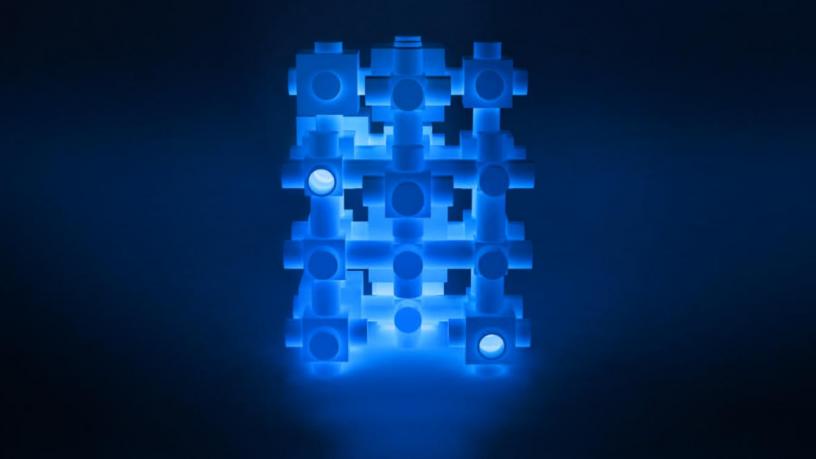Designing Artificial Intelligence to Solve Global Problems
Artificial Intelligence (AI) is transforming our lives in ways that were almost unimaginable just a few years ago. At Columbia Engineering, researchers are not just developing and refining the algorithms that are AI's intellectual firepower; they are integrating the most advanced AI techniques into a broad variety of creative solutions that have the potential to radically alter and improve people's lives. The work underway in Columbia's labs is leveraging these advances to solve some of the big challenges facing individuals and society.

Changxi Zheng creates building blocks of sound using combinations of voxels. Different configurations create unique sound signatures. (Image courtesy of Changxi Zheng)
Professor Hod Lipson has engineered a deep learning system that can turn a drone into an agricultural disease expert as effective at spotting diseases as humans are-and far more efficient. Professor David Blei has developed machine learning algorithms that have the smarts to analyze the treasure trove of genomic data that has overwhelmed less sophisticated systems. Professors Kathleen McKeown and Julia Hirschberg are employing their expertise in natural language processing to design a system that can help disaster relief teams detect emergency situations in crisis-beset populations whose languages are little known. Professor Xunyu Zhou is using reinforcement learning to connect human financial behavior with market data to improve automated asset management. Professor Changxi Zheng's research on manipulating acoustic propagation through AI-enabled design will have creative applications in everything from automotive mufflers to underwater communication.
These wide-ranging research projects, just a sample of the AI work underway at Columbia Engineering, have the potential to help eradicate hunger, unlock the mysteries of heritable disease, save lives after natural disasters, reshape financial markets, and reduce noise pollution.
